Color Tolerance Definition and MacAdam Ellipse Theory
Color tolerance: Characterizes the difference between the X and Y values ​​calculated by the optical color detection system software and the standard light source. The smaller the value, the closer the product's light color coordinate to the standard value, the smaller the difference between the spectrum emitted by the light source and the standard spectrum, the higher the accuracy, the more pure the color of the light.
McAdam's ellipse theory: In 1942, scientist McAdam experimented with 25 colors using the principle of correlation, measuring about 5 to 9 opposite sides of each color point, recording the two-point distance when they were able to distinguish the color difference. The result is an ellipse of various sizes and lengths, called the MacAdam ellipse. The MacAdam ellipse is usually described by "order". The "order" mentioned here refers to the standard deviation. The 1st order MacAdam ellipse refers to the standard deviation of the color matching result change from the target color by 1 time. Similarly, the meanings of the 3rd order, the 4th order, etc. are known.
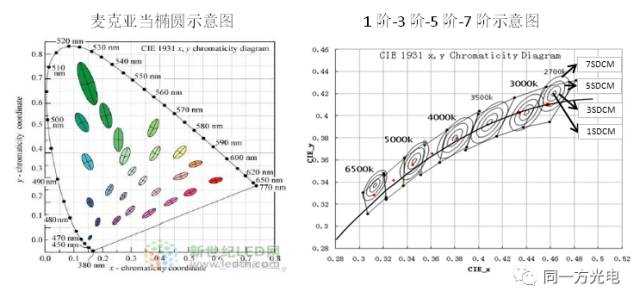
Color tolerance main standard category
At present, the main color tolerance standards in China are mainly North American ANSI standards, IEC, EU standards, and their corresponding color tolerance centers are summarized as follows:
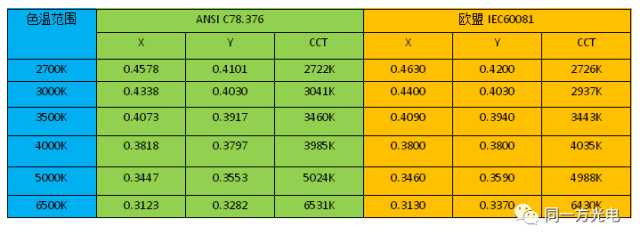
Color temperature range corresponding to the color tolerance
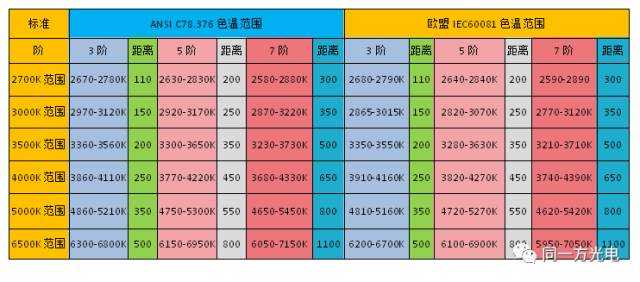
Industry standard level:
1. ENERGY STAR ANSI C78.376, color tolerance ≤ 7 SDCM, divided by LED characteristics.
2. The EU standard ERP, the color tolerance is ≤6 SDCM, and the LED division area is standardized according to the technical requirements.
3. National standard GB10682-2002, double-end fluorescent lamp performance requirements color tolerance ≤ 5 SDCM, can be used as a reference for LED lamp color tolerance.
Comparison of IEC standard and ANSI standard 3rd order schematic

Note on color tolerance problem test:
1. It can be seen from the figure that there are differences between the two standard center points of IEC and ANSI, among which 6500K, 3000K and 2700K are obviously different. The following singles must first confirm which standard is used (currently, the same side photoelectric test according to IEC standard, other products can also be selected according to customer needs. standard).
2. Select the coordinates of the color tolerance center point of the corresponding color temperature segment. For example, the 6700K color temperature selection 2700K standard test color tolerance will be very large (some machines will automatically select).
Right-angle prism is the most common type of prisms. It is used to re-direct a beam of light at 90 degrees from the the incident direction or used as a 180 beam retro-reflector. They are often coated with various optical coatings to form cubic beam splitters and color separation cubes used in various projection systems.


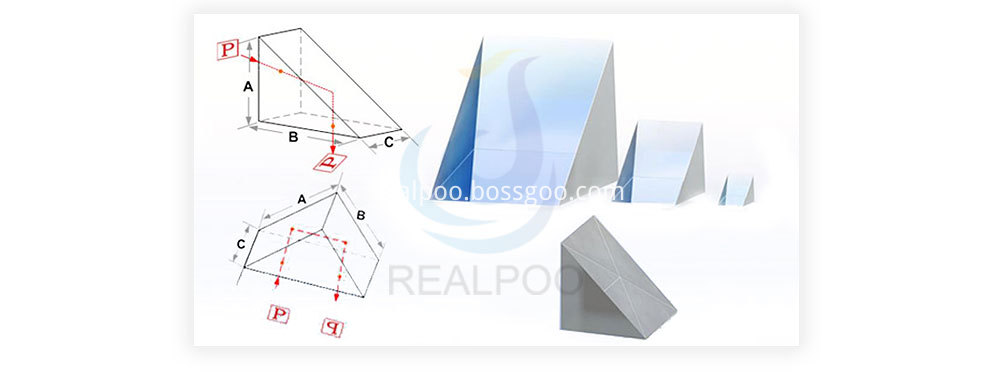
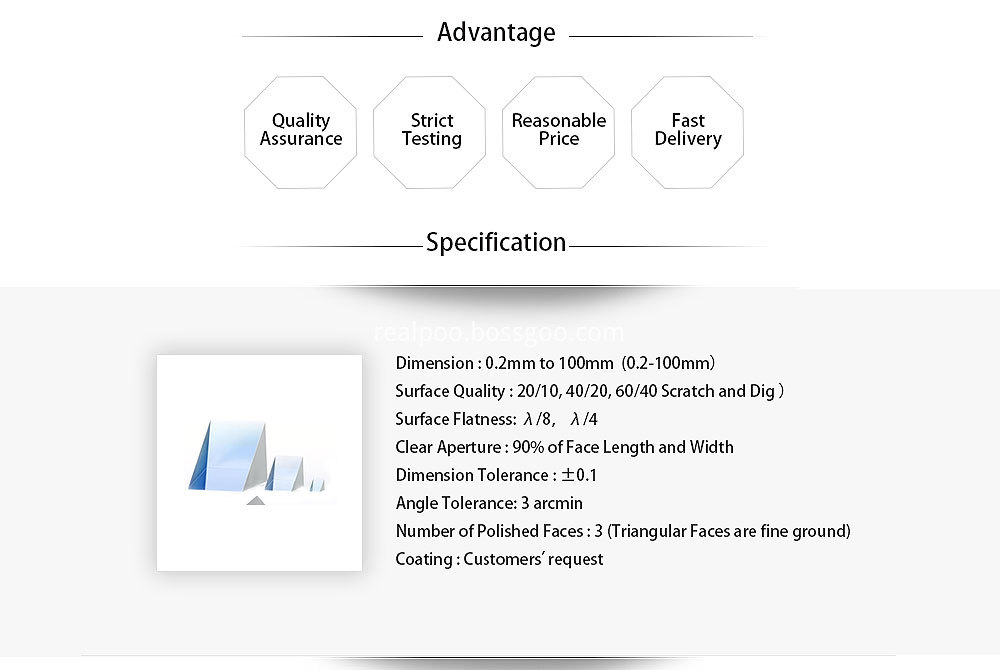
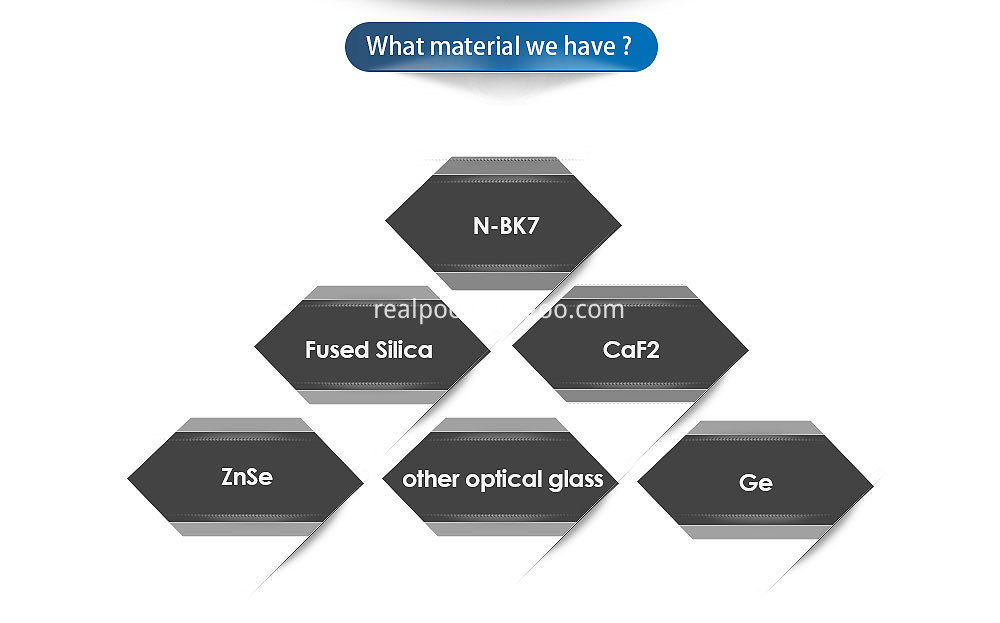
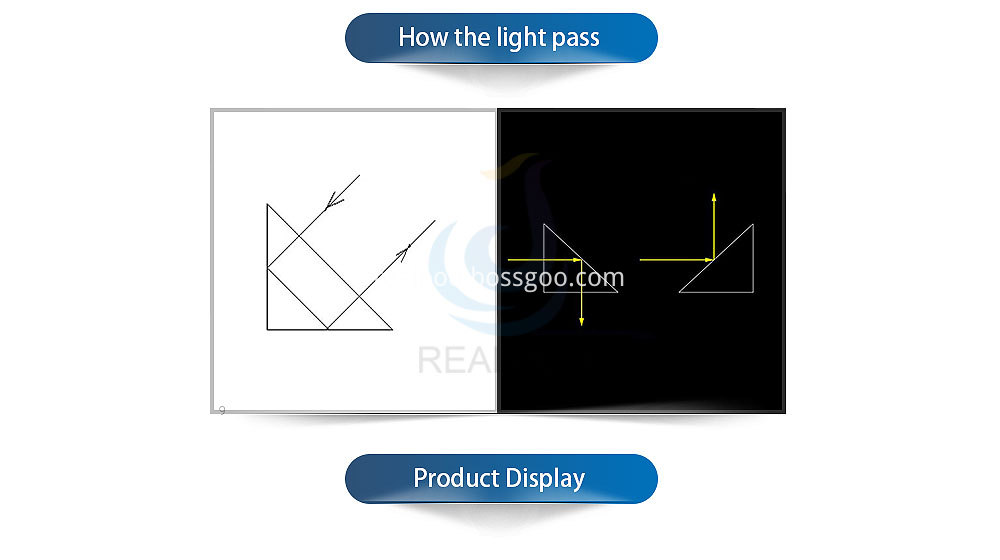
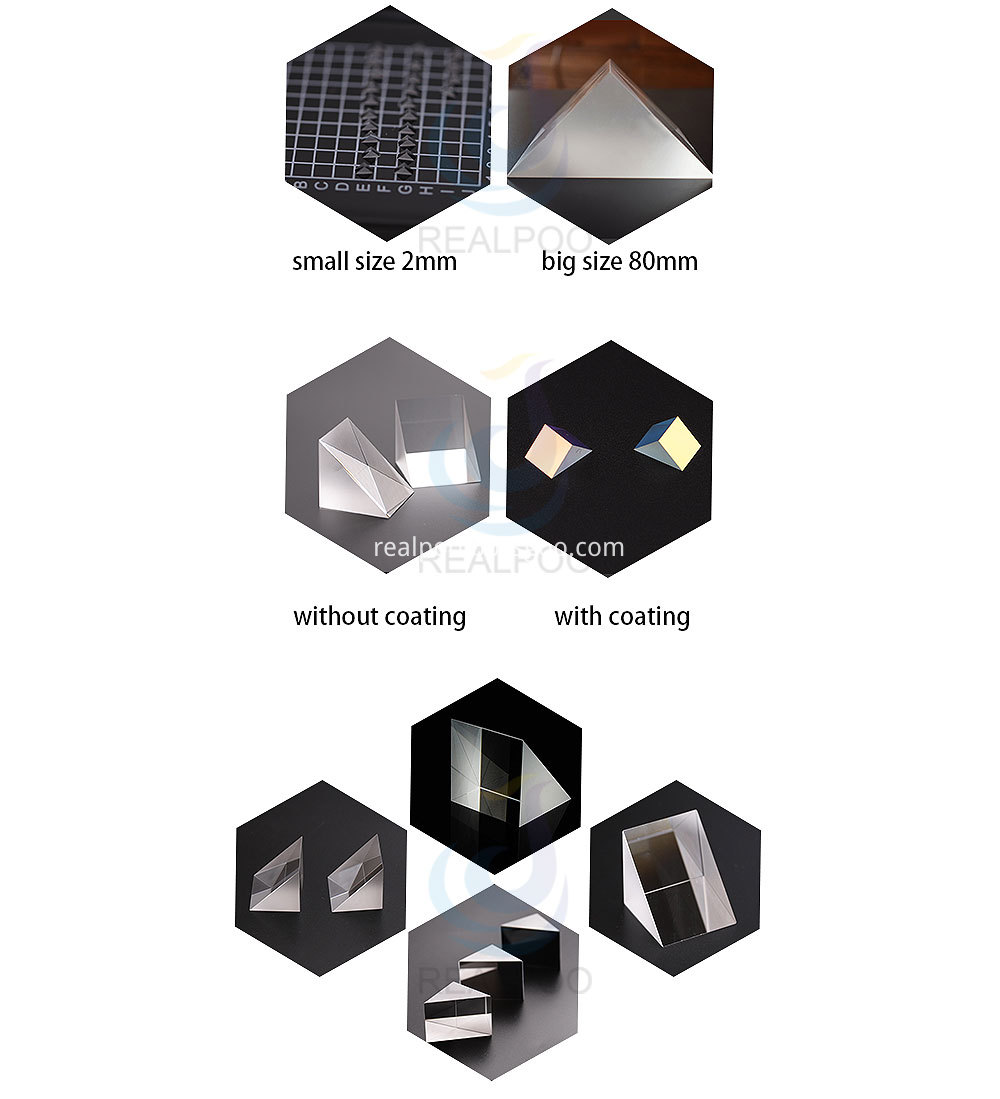
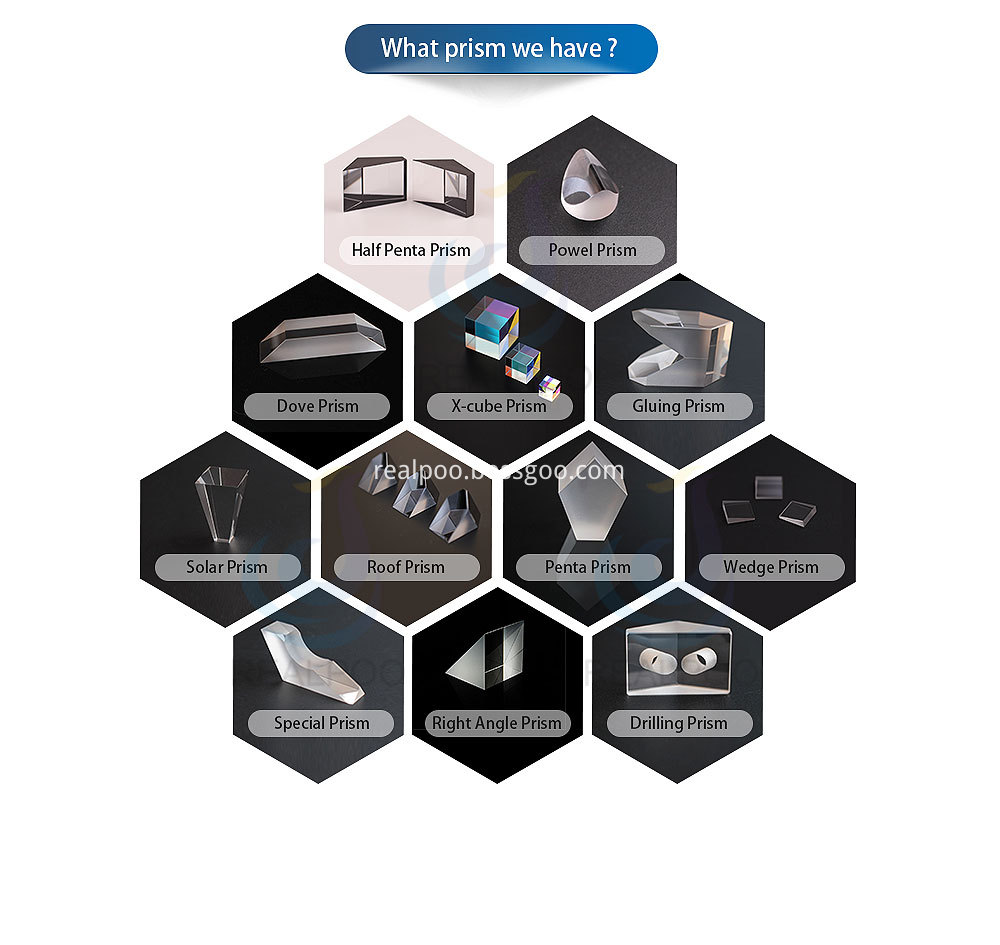
Right Angle Prism,Right Angled Prism,Right Angle Prisms,Optical Prism
Changchun Realpoo Photoelectric Co., Ltd. , https://www.optics-realpoo.com